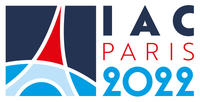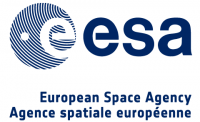›9th International ESA Conference on Guidance, Navigation & Control Systems
Session Descriptions:
Advances in Sensors and Actuators
Papers are encouraged to describe new developments and promising new technologies for AOCS and GNC applications. Papers may cover component developments, equipment developments and new test results. Papers are also encouraged on requirement evolution and trends.
Advances in Control and Estimation
The session contemplates advanced control and estimation applications driven by demanding and complex space missions. Papers should focus on demonstrating how advanced techniques (such as robust control and robust estimation methods) can be used for given applications and quantifying their benefits at system level (in terms of performance, margins, AOCS/GNC design, development, validation & verification process).
Current missions
The Current Missions session presents the AOCS detailed design aiming at answering the mission key requirements and challenges. Current missions are intended as those presently in Phase B, C or D. Papers are encouraged especially for missions with unusual AOCS designs, describing trade-offs conclusions and lessons learnt.
Future Missions
The Future Missions session presents mission overview, AOCS preliminary design and their key requirements and challenges, together with how these may be addressed by the design. This session targets missions currently pre-Phase A or Phase A. Papers are encouraged especially for missions with unusual AOCS demands and requirements, be these technical, schedule or cost.
In-Orbit Experiences
This session presents the results of in-orbit experiences of AOCS/GNC systems and hardware. Emphasis is placed on in flight performance validation and demonstration of new techniques as well as anomaly description, recovery and work-arounds.
Student Session
This session gives the opportunity for young Students up to master level to present work they have done on AOCS and GNC systems, operations and equipment (novel sensors and actuators) design, development and test.
Space Transportation (Launch Vehicles and Re-entry)
This session addresses the challenges of GNC design and development for launch vehicles, orbital infrastructures and re-entry vehicles. Papers covering validation & verification approaches and test results, including real time validation on avionics testbenches are encouraged.
Exploration missions (Exploration missions and EDL)
This session explores the specific challenges and hardware requirements needed for interplanetary exploration, autonomous orbit insertion and entry descent and landing, with a particular emphasis on the GNC chain validation strategies through prototyping, breadboarding, real time testing, and dynamics testing through ground-based or flying testbeds.
Debris mitigation and removal
This session contemplates the new challenges arising from the need for debris mitigation and active debris removal, from an AOCS/GNC perspective. The session covers the adaptations of AOCS and propulsion architecture of future satellites to comply by themselves with the end-of-life disposal regulations. It also covers active debris removal techniques and the following topics: debris de-tumbling, non-cooperative rendezvous techniques and image processing, control and de-orbitation, GNC architecture and associated sensors and actuators as well as mission safety.
High accuracy pointing
This session is focussed on high accuracy pointing systems (in the range of the arc seconds or below) typically needed for emerging science missions or high resolution imaging satellites. The session will in particular address pointing error engineering, active disturbance isolation, line of sight stabilisation, control techniques and AOCS design with sensors & actuators.
Autonomy and FDIR
FDIR aims at protecting the spacecraft against any type of failure, but increasing FDIR complexity can be counterproductive. The trade-offs between mission availability and satellite safety, autonomy and ground control are critical with strong impacts in terms of FDIR complexity, cost and validation. Efforts to harmonize FDIR architectures with more efficient requirements and solutions and to guide the FDIR engineering process along the design and development cycle can be reported in this session, as well as general autonomy issues. All unmanned missions can be addressed, Earth Observation in LEO or GEO, telecommunication and scientific satellites as well as interplanetary missions with very long ground reaction times.
Autonomous navigation
This session is devoted to autonomous navigation from conceptual design to hardware implementation. The list of topics covered includes: autonomous orbit determination (based in particular on GNSS systems in Earth orbits), autonomous vision-based navigation, covering planetary landing (absolute and relative navigation), interplanetary navigation (e.g. encounter with small bodies or planetary swing-by optimisation), rendez-vous, hybrid navigation techniques and multi-sensors data fusion tailored to space missions, and associated avionics implementation solutions. Beyond describing the techniques themselves, the papers should demonstrate their benefits at system level.
Miniaturization and new technology trends
This session is focussed on miniaturisation with emphasis on system on chip, mixed signal ASICs, the role of miniaturisation in AOCS and the technical and financial challenges of demonstrating, bringing to the market and future proofing miniaturised technologies. Papers covering case studies, applications, needs, current and potential developments are encouraged.
Track this event on your Apple calendar














 Portugal
Portugal